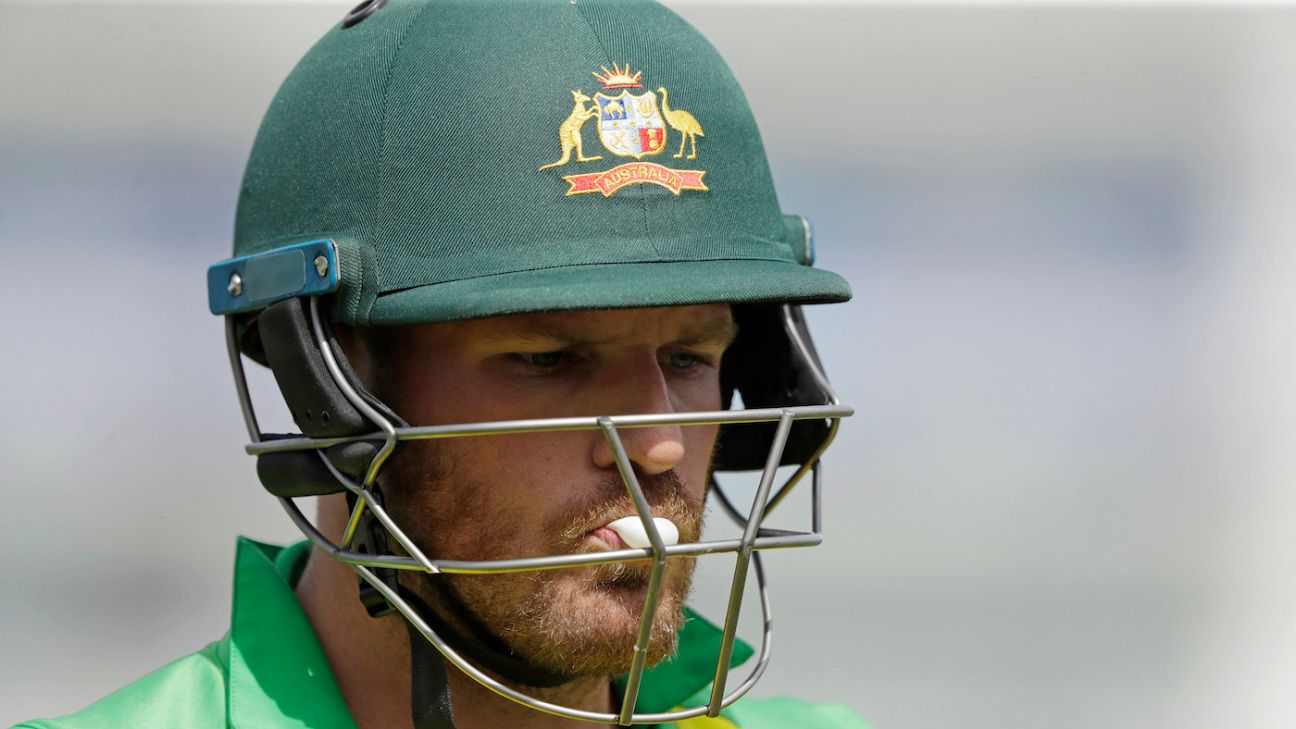Aaron Finch strikes positive note as Australia greet familiar opponents - 4 minutes read

It's not quite the new India-Sri Lanka, but if auditions were being held for India's new go-to opponent, it's fair to say Australia would be a shoo-in. All that's needed is for India to postpone a series, or pull out of one and rope Australia in as a last-minute banker. It will happen soon enough.
The two sides have already played eight ODIs across both countries this year alone, and without looking it up, if you can remember how the two series panned out, you're welcome to take over Statsguru.
A lot has been made of the ICC's desire to ensure India and Pakistan play at every one of their events. But the two teams that have actually played against each other most often at ICC events? India and Australia. And the punchline to this is that New Zealand and Sri Lanka are the two other teams who have played each other most often at ICC events (both rivalries, 20 games young now).
But it's not just those eight ODIs - and Tests and T20Is. It's also about how the IPL is a virtual home for Australians, opponents to and team-mates of the players they take on at The Oval on Sunday. For the degree of familiarity, if the two teams combined to put out one team at an ICC event, nobody would bat an eyelid.
Yet the overkill has served a purpose for Australia at least. It was the ODI series in India earlier this year where they turned around their ODI form, form which now is accompanied by all those murmurs that this (like five others) is Australia's World Cup.
Now it's not as if they are genetically wired to win cricket tournaments, but you can see why people are thinking it. They're winning games - and the win over West Indies was exactly the kind of win that's not going to dial this talk down.
Steven Smith and David Warner are back, with runs. It's Australia. They've found a way to win an early tough game. Their captain believed, even without Warner and Smith, and back when they couldn't win a backyard game, that he had the side to win this World Cup. Watch out. This is a trope that endures as much as the one around Pakistan at these tournaments.
But that familiarity with India will help them on Sunday in, for example, knowing what to expect when Kuldeep Yadav or Yuzvendra Chahal come on. On that last tour, Australia picked up quick on how to play each and controlling Kuldeep was instrumental in turning a 0-2 deficit into a 3-2 win.
"Yeah, I think winning them last three games is really important for us in India, to one, get some self-belief that we can beat this Indian side in their home conditions," Aaron Finch said. "For that, I think when you look back, it comes down to taking them key moments in games and making sure that no matter what the situation of the game or the series or the tournament, whenever you're playing India, you have to believe that you can beat them because they're a world-class side.
"So to be able to beat them in their home conditions three times in a row was really important for the confidence of the side, especially going into a game like this."
The problem with this India attack - and side - is that it isn't just the one or two. There's difficulties everywhere. Jasprit Bumrah and Bhuvneshwar Kumar to see off, there's Shikhar Dhawan, Rohit Sharma and Virat Kohli to see the backs of. There's Hardik Pandya to account for. Even late-career MS Dhoni, nowadays modelling the Misbah-ul-Haq approach with the bat.
And as much as Australia have the confidence of beating them recently, and playing with and against them a lot, one-off tournament games are unforgiving. Before you know it they're over and if you learnt something in the way you were dismissed, or how one batsman played you, there's no immediate point: this isn't a bilateral series.
"We saw in the latest series we played against them that regardless of what the scoreline might be, whoever turns up and produces their best on the day will win," Finch said. "It's about everyone chipping in and contributing as best they can to help Australia win tomorrow."